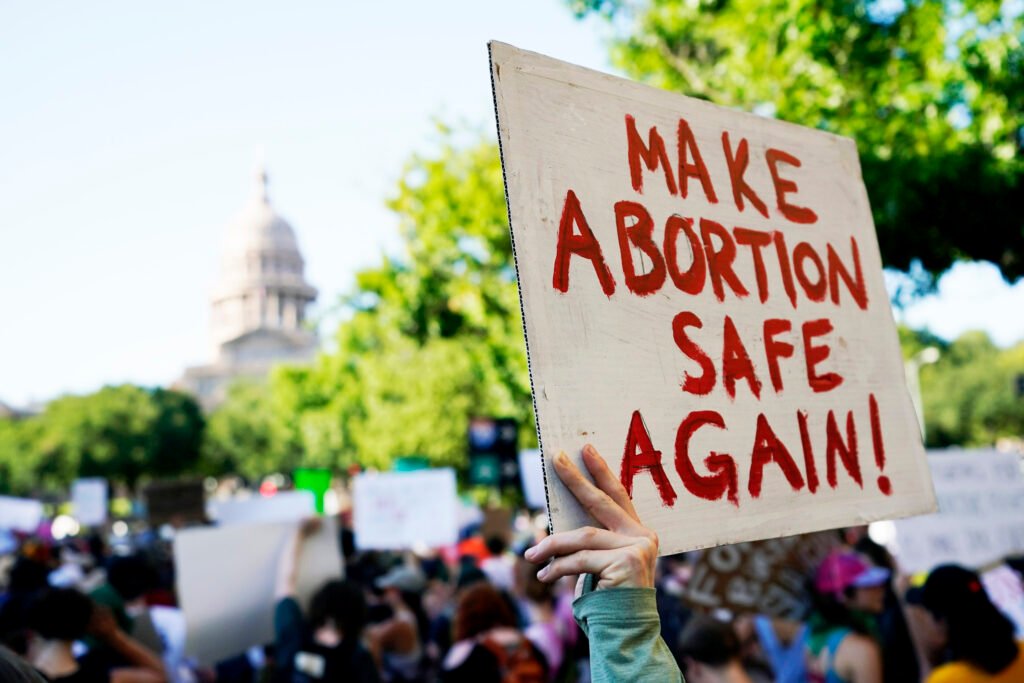Abortion means intentionally terminating an unborn human from a pregnant human fetus, especially during the first 12 weeks of gestation. Abortion laws are different in every country, some countries legally allow abortion and some countries restrict it or label it illegal. However, the only exception is when the women’s life is in danger, then the state “allows” them to abort an unborn baby.
Pakistan is one of those countries where abortion is illegal but allowed in certain circumstances, for instance, “abortion is legally allowed only to save the life of a woman or to provide necessary treatment early in pregnancy”. If a woman intentionally causes to miscarry the unborn child, then she is liable to be punished. According to the Pakistan Penal Code section, 338 and section 339-A its punishment are “with imprisonment of either description for a term which may extend to three years if isqat-i-haml (abortion, miscarriage) is caused with the consent of the women”. Hence, in statist language abortion is legal only in cases of exception, otherwise, it is not fully legal.
Nonetheless, there are many countries where abortion is legal, in Canada, one can go for an abortion if they have health risks or in the case of rape; in Russia, abortion is fully legal up to the 12th week of pregnancy; and in Japan, abortion is allowed if one has economic and health issues. Furthermore, some countries also allow abortion on request, for example, Iceland, Italy, Germany, Denmark, Greece, Maldives, Norway, Nepal, and Kosovo.
According to a survey related to the issues of abortion, abortion rights are Human rights, “970 million women, representing 59% of women of reproductive age, live in countries that broadly allow abortion. While a majority of women live in countries where they can exercise their right to abortion, 41 percent of women live under restrictive laws. The inability to access safe and legal abortion care impacts 700 million women of reproductive age”.
Additionally, the World Health Organization said that 23,000 women die each year because of unsafe abortions and thousands suffer from health snags. According to the Center for reproductive rights, “the right to safe and legal abortion is a fundamental human right protected under numerous international and regional human rights treaties and national-level constitutions around the world. These instruments ground safe abortion in a constellation of rights, including the rights to life; liberty; privacy; equality and non-discrimination, and freedom from cruel, inhuman, and degrading treatment.” It means abortion laws are related to human rights laws, so the question arises why abortion laws are not treated as human rights. Why is it restricted and controlled by the state? Why in terms of abortion the personal becomes political? These are some questions that need to be discerned carefully and handled in a humanitarian manner.
In terms of the state, they mostly give reference to natural law which relates to the issues of virtue and morality, hence from the lenses of morality abortion is perceived as immoral and that is why it gets restricted and controlled by the state. However, if seen from the feminist and humanitarian perspective, this right should be given to the female for they know about their body, their socioeconomic issues, and their responsibilities better to decide whether they should go for an abortion or not.
No matter how much we align with the theory of morality in terms of abortion, we cannot deny that abortion is a societal and political problem. As all politicians are not lawmakers but all lawmakers are politicians, hence abortion has become a vital political issue and the laws related to it must be revisited. Further, the task of revisiting should not be seen with suspicion as women are a major part of our society, the state is liable to protect their needs and protect those laws of theirs which should make the women confident rather than questioning their dignity if they take an initiative for the betterment of themselves and their family.
Abortion is a very controversial subject all around the globe yet the state should protect the human laws and rights that are related to the women of a society not only because they are any superior or inferior but because their voices and issues have been historically suppressed and managed by male-dominated governance.
Every state, at least, should make such laws that could accord with the fundamental human rights laws. Before making any laws that specifically subject women, it is important to inclusively let the women have a fair share of their say since the laws affect them directly and because only a woman knows the problems restricted to her in terms of socio-economic and health problems. Women, in every household, are running the affairs of their house and are responsible for taking care of their children, so we must not underestimate their power and intellect in making decisions for themselves.
The writer is a Law student at Ziauddin University, Karachi.
